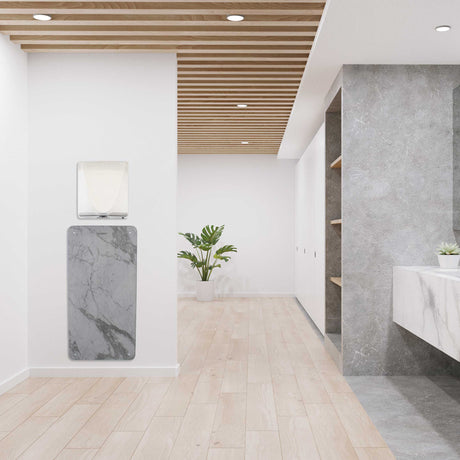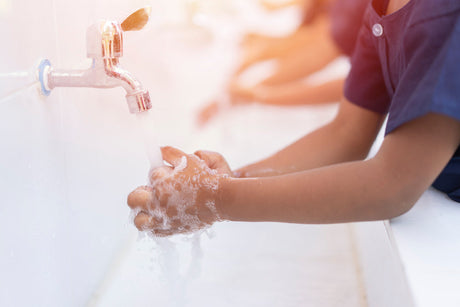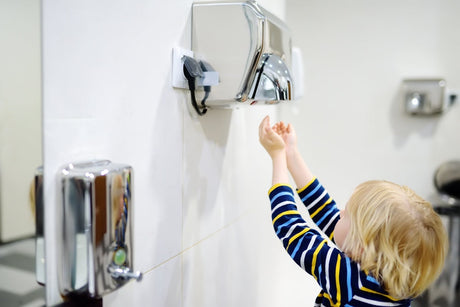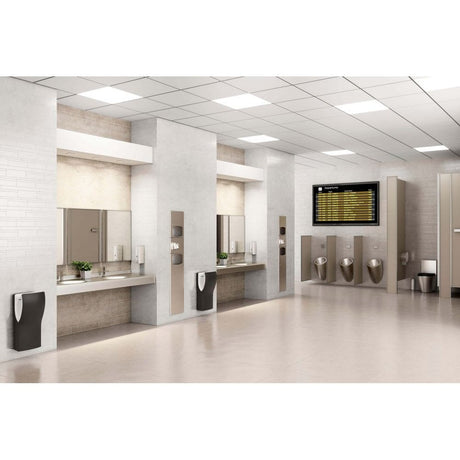Hand dryers have come a long way since their introduction in the 1940s. What was once a slow and noisy alternative to paper towels has evolved into a high-speed, energy-efficient solution that’s commonplace in washrooms across the UK. One of the most talked-about developments in recent years is the addition of HEPA filters – but what exactly do they do, and do they really make a difference?
What is a HEPA filter?
HEPA stands for High-Efficiency Particulate Air. These filters are designed to trap at least 99.97% of airborne particles that are 0.3 microns in diameter (a micron is 0.001mm). That includes dust, pollen, mould spores, bacteria and even some viruses. First developed for use in medical and cleanroom environments, HEPA filtration has found its way into all sorts of appliances, from vacuum cleaners to air purifiers, and now hand dryers.
How do HEPA filters work in hand dryers?
In hand dryers equipped with a HEPA filter, the air is drawn into the unit and passed through the filter before it’s blown onto your hands. The idea is simple: by removing contaminants from the air before it’s used to dry your hands, you're exposed to cleaner, more hygienic air during the drying process.
This can be particularly reassuring in high-traffic areas such as hospitals, schools, airports and restaurants; places where hygiene is a top priority and the risk of airborne bacteria is higher.
Is the air from standard hand dryers dirty?
One of the criticisms sometimes levelled at traditional hand dryers in general is that they could circulate unfiltered air, potentially spreading germs. While the risk is generally low and the effect negligible, it's a valid concern in environments where cleanliness is paramount. In these settings, a HEPA filter adds an extra layer of protection.
It’s worth noting that most modern hand dryers already draw air from the surrounding environment, which is the same air that we are breathing. However, by filtering that air before it hits your hands, a HEPA-equipped dryer offers a more hygienic finish. And for many, that’s peace of mind worth having.
Do HEPA filters affect performance?
Some might worry that adding a HEPA filter could slow down drying time, but that’s rarely the case. The best models are designed to balance airflow and filtration efficiently, so you still get rapid drying times, often under 10 seconds, without compromising on hygiene.
Having said that, it’s also important to remember that HEPA filters need to be maintained. Over time, filters can become clogged, reducing airflow and effectiveness. We recommend checking the filter to see if it needs replacing every six months or so, depending on usage.
So, do HEPA filters make a difference?
In short - yes. While HEPA filters aren’t strictly necessary for every environment, they do offer clear hygiene benefits, especially in settings where cleanliness matters most. For businesses and facilities looking to go the extra mile for users, opting for a hand dryer with a HEPA filter is a smart, forward-thinking choice.
See our range of hand dryers with HEPA filters here.
At Handryers UK we offer free next day delivery, 90 day returns and an industry leading price match policy. We can also provide an installation service if needed. For any further help simply call us on 0114 322 3663 or contact us here.




